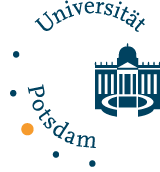Development of easy items (ELA)
Principal investigators: Prof. Dr. Dirk Richter, Dr. Katrin Böhme (IQB)
Cooperation partners:
Prof. Dr. Antje Ehlert (University of Potsdam), Prof. Dr. Michael Grosche (University of Wuppertal),
Prof. Dr. Jürgen Wilbert (University of Potsdam)
Duration: 01.04.2015 - 31.12.2017
Funding: Berlin, Bremen und North Rhine-Westphalia
Project description
Large-scale-assessments, such as PISA or the IQB's national assessment studies, include both regular students and students with special educational needs (SPF). In previous assessments, students in the latter group were usually given fewer and considerably easier tasks, in order to avoid excessive demands. However, due to the continuing implementation of inclusive education, an increasing number of classes include students with special educational needs. Large-scale-assessments need to address this change in the classroom, such that test booklets cover the wide range of student performance. In order to ensure this, it is necessary to develop additional items that appropriately address the competencies of low-performing students.
In the course of the ELA project, easy items for the subjects German and mathematics were developed in collaboration with researchers from the department of Inclusive Education at the University of Potsdam. As part of the IQB's national assessment studies, these items assess reading, listening and mathematical competencies of students with special educational needs. Items developed for the project were tested in the autumn of 2015 at primary schools and in schools for children with special needs in Berlin, Bremen and North Rhine-Westphalia. Findings demonstrated that the items adequately measure the aforementioned competencies and can therefore be used in educational monitoring programs. The items developed in the project will be used as part of national assessment studies at the primary level. Moreover, the federal states that have funded the project conduct an oversampling of students with special educational needs in the National Assessment Study 2016 to reliably measure the competencies of these students.
